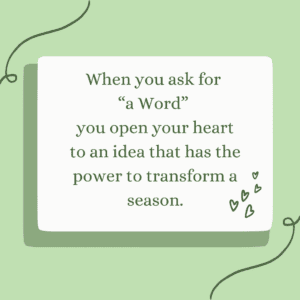“Careful, you may have used up your quota of miracles.” he whispered, with a deep regard and care for my trial.
Is it possible to indeed use up my quota of miracles? Is there such a thing? Does God keep track of the number of times He has helped, or provided in my time of need? Does He keep count? Could there possibly be an end to His grace, His love, and His mercy?
As though God were dispensing a commodity, something that could be used up. A natural thought, yet a wrong thought. Wrong because it misunderstands the nature of God.
He cannot limit Himself, for He is grace, He is love, and He is mercy. These are not things He gives away, they are the things that make up His being. He cannot run out of Himself.
Limit-less is He,
without boundaries,
without measure,
without tally or score.
Frivolous, spendthrift,
totally in love with me.



 I don’t like categorizing a year as being a “good” or a “bad” or recounting “who we lost this year.”
I don’t like categorizing a year as being a “good” or a “bad” or recounting “who we lost this year.”